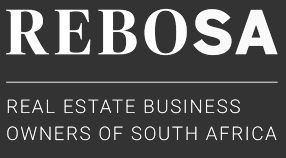Keep the Bigger Picture in Mind when it comes to Property
Category Advice
There’s been cause for concern when it comes to the South African economy of late; the downgrading of its sovereign debt ratings by international ratings agencies, the impact of the Platinum strike, now followed by the Numsa strike, rumours of a possible recession – the list goes on.
“Sometimes it’s easy to forget that South Africa, and it’s economy, has faced challenges before and will continue to do so going forward but, irrespective of this the property market continues to grow. After all everyone needs a place to live – regardless of the economy is doing”, says Bruce Swain, MD of Leapfrog Property Group.
From Macro to Micro
Data from Statistics SA’s General Household Survey 2013 paint a more positive picture – at least in terms of housing. According to the data the percentage of people who fully owned their own formal dwellings (a structure built according to approved architectural plans, i.e. a house on a separate stand, a flat, apartment, townhouse, room in a backyard, and rooms or flatlets elsewhere) increased 52.9% to 54.9% between 2002 and 2013. While this number stood at 61.4% in 2008 (before the mortgage crisis) it has rebounded to almost 55%.
Households that partially own their own home have increased by 4% and the percentage of households that now live in formal dwellings has increased to 77.7%. “In essence the data reveals that more South Africans now live in properly built homes than ever before, indicating that the standard of living has not only improved, but that the property market has grown,” believes Swain.
The FNB Estate Agent Survey for the 2nd quarter of 2014 supports this indicating that “1st time buyers as a still-strengthening source of residential demand, despite the start of interest rate hiking in January”.
It’s Costing More to Stay Warm
Granted, home owners are now being challenged in a far more direct manner than dealing with larger economic woes due to a number of electricity price hikes announced on the 1st of July this year - in eThekwini the cost of electricity will 7.39%, in Kimberley by 6.72% followed by 7.63% in Cape Town and 7% in Johannesburg.
On a more positive note the repo rate has remained stable since its growth of 5 basis points earlier this year and it seems likely that it will remain so into 2015.
“Currently our agents are reporting stock shortages as the biggest hindrance to selling so, while home owners of second properties, in coastal or country areas, may come under pressure it seems that the market is slowly edging forward regardless of the economy and price hikes”, says Swain, “I also firmly believe that property is not only an essential, but also a good investment with long term prospects. As such I’d advise buyers to do their homework, check their budgets and by all means to buy”.
Author: Leapfrog Property Group



